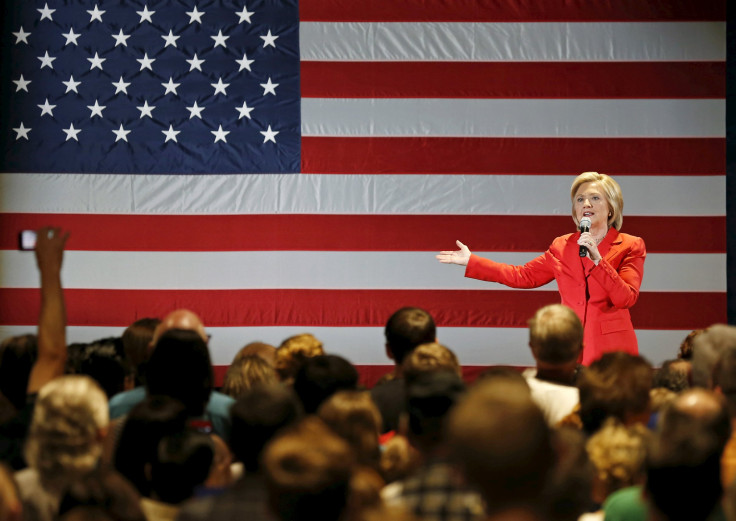Election 2016: Seeking AFL-CIO Endorsement, Sanders, Clinton Offer Different Visions To Top Labor Leaders

White House hopefuls made their case this week for the endorsement of one of the Democratic Party’s most powerful constituencies -- organized labor.
It’s unlikely the nation’s largest labor federation, the AFL-CIO, will make an endorsement before the competitive primary season draws to a close. But the group’s many affiliates -- some of them major political players in their own right -- are more likely to jump into the Democratic fray before then. And appearances from Bernie Sanders and Hillary Clinton before the federation’s executive council on Wednesday and Thursday underlined the tough decision such unions face if and when they choose to make their move: back the underdog with the unequivocally pro-labor voting record or side with the obvious favorite who isn't perfect on every issue.
“Bernie never has to wake up in the morning and decide what side he’s on,” said Rose Ann DeMoro, executive director of the National Nurses United union. “And the difference between him and most candidates is he knows there’s sides in the first place.”
“When Bernie was in the room, there was genuine excitement that we had a political figure there sitting with us who wasn’t just saying 'yeah, you’re right, I agree with you guys,' but has a strong rationale for dealing with what’s wrong with America today and changing it,” said Larry Hanley, the president of the Amalgamated Transit Union. “In that respect, we have some tough choices to make here.”
“This is really the contrast," Hanley said. "Bernie said, ‘We need a movement in America, we need to change the way everything’s done. I’m not running because I want a job and want to be president. I’m running to help lead a movement that lasts for decades.’”
“Who could disagree with that?" Hanley said.
That kind of progressive long-view of social change -- the ideological backbone of the labor movement -- stands in contrast to Clinton’s more modest and traditional approach to politics. But Hanley also said the former Secretary of State “came across as somebody who genuinely cares about working people,” and “was very well-received.”
On policy matters, both candidates highlighted issues of importance to trade unions, according to labor leaders and officials who were in attendance. Sanders called for more public investment in infrastructure and jobs and setting stronger environmental standards. Clinton talked about her support for strengthening collective bargaining, passing a new version of the Voting Rights Act and doing away with the Citizens United decision. The clearest policy difference emerged on trade.
Sanders articulated his clear opposition to the Trans-Pacific Partnership (TPP) -- a deal that labor critics say will lead to heavy job loss and empower multinational corporations. Clinton, on the other hand, continued to take a fuzzier line. Over heavy lobbying efforts from unions and other progressive groups, Congress recently approved so-called fast-track authority. That means federal legislators cannot amend the version of the TPP that trade negotiators present to them for approval and can only vote “yes” or “no.”
“A lot of us are hoping she will come around to a stronger place,” said Hanley. “I’d be lying to you if I told her she’s exactly where we want her to be. But she did not present herself as a free-trader who would not listen.”
Clinton’s ambivalence was especially apparent since it followed heavy criticism of the trade deal from Nobel Prize-winning economist Joseph Stiglitz, says another labor official in the room who declined to be named because the meetings were officially closed to the press. Stiglitz spoke to the council before Clinton, and slammed the deal’s expansion of so-called "investor state dispute settlement" tribunals -- special third-party courts that allow corporations to sue national governments for violating terms of the treaty. Stiglitz had blasted one such high-profit lawsuit from Philip Morris against the government of Uruguay, saying the company is suing for the “right to kill people.”
Another difference between the candidates emerged after the closed meetings, when Clinton said she backed a federal minimum wage of $12 an hour rather than $15. Sanders, on the other hand, recently co-sponsored legislation in Congress to set a $15 hourly pay floor.
The American Federation of Teachers, which formally announced its support for Clinton earlier this month, is the only major union to have endorsed a candidate so far. Others are expected to trickle in before the first primaries in February.
© Copyright IBTimes 2025. All rights reserved.






















